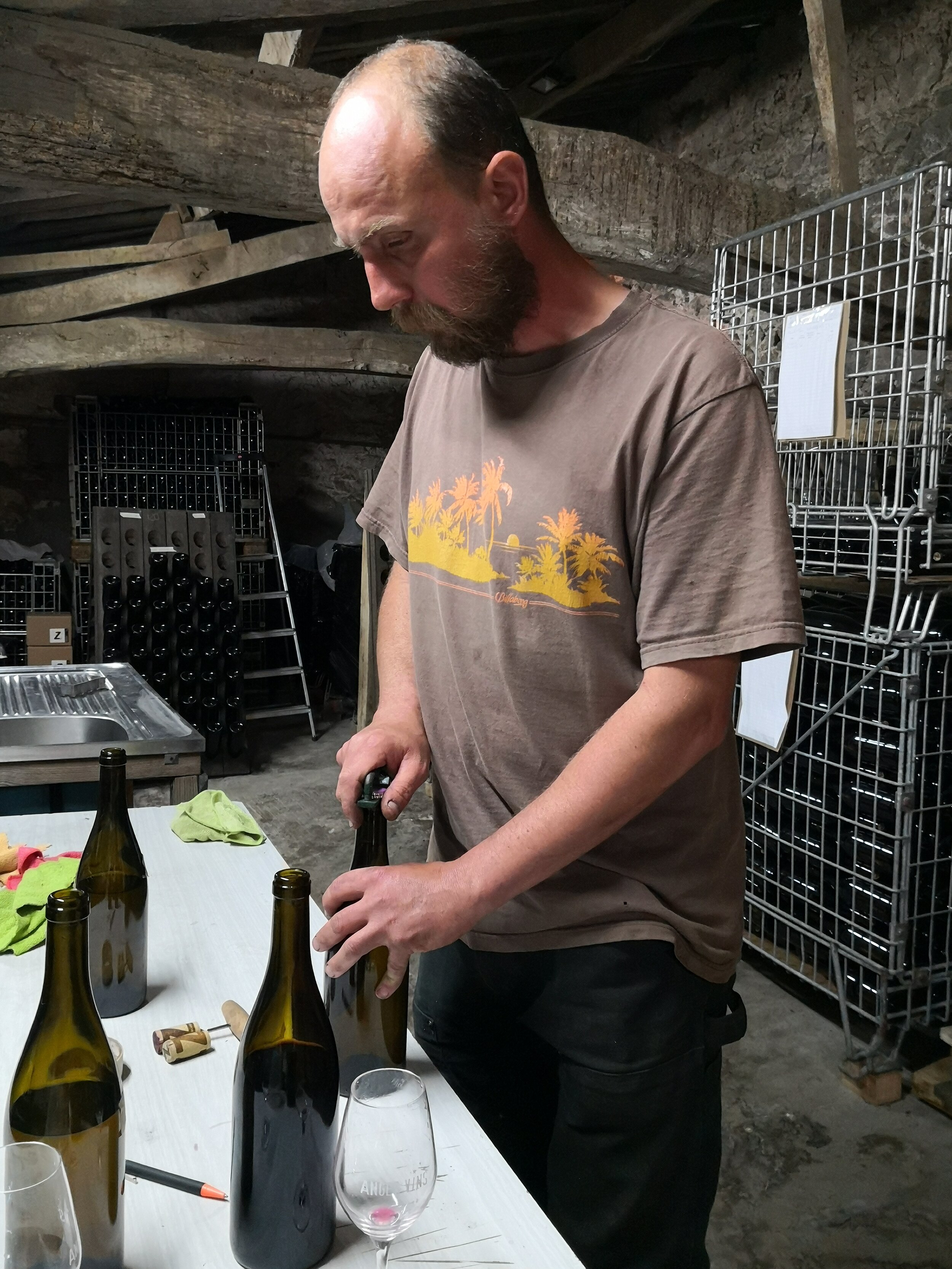Thomas Zurbach
LES VIGNES Z
Saint Aubin de Luigné
Loire, France
Thomas was working in a comfortable office job at the Museum of the Vine near Angers when he concluded that it was time for a fundamental change of career. He wanted to be doing something more tangible, more hands on. He is from Besancon in the eastern part of France towards Switzerland but had been in the Loire, surrounded by vineyards and winemaking, for several years and he realized that what he was looking for was right there, all around him.
He embarked on an adventure that would take him first to wine school where he obtained his Viti-Oeno qualification in 2011 followed by years of learning the ropes with, amongst others, Jean Pierre Robinot and René Mosse. His winery experience though wasn’t only limited to those practising natural methods. He worked at wineries practicing conventional farming and an enormous 60-hectare French certified organic estate, but wherever he worked, he always left having learnt valuable lessons about winemaking and managing the daily work of a winery. Finally, he opted to pursue winemaking with a natural approach because for him, it’s the most “honest” method, with respect both to the wine and to the consumer.
Thomas produced his first wines in 2018 and over the brief time that he’s been winemaking, he’s managed to acquire small parcels of certified organic vines here and there from winemakers such as Philippe Delmee and Toby Bainbridge. He presently farms four parcels totalling less than 1.5 hectares (3.5 acres) made up of Chenin Blanc vines planted in the 80s and 90s, and 40-year-old Grolleau Noir vines. Thanks to the previous owners, Thomas’ vines have been “clean” for many years, but he continues along the same vein aiming for as few treatments as possible of copper and sulphur. The soils are worked mechanically but lightly, with a shallow form of ploughing called decavaillonage. It involves removing soil where weeds are growing that was piled at the base of the vines to protect them from the cold and putting it back between the rows while taking the weeds with it.
In the cellar, his wines are not filtered or fined and he hasn’t yet felt the need to add sulphur to any of his wines. His whites are generous, fermented and aged in fibreglass, while his lone red is made using semi-carbonic maceration in fibreglass and epoxy lined tanks. The deep ruby color mistakenly prepares you for a fuller body, but it opens lively with notes of spice and red fruits. In the mouth the slight buzz – you may want to decant – quickly makes way for more fruit, balance, and high levels of drinkability.






